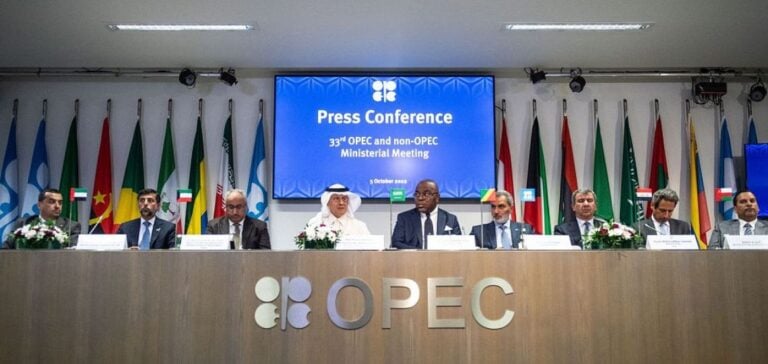The Organization of the Petroleum Exporting Countries and its allies, known as OPEC+, cut their crude oil production by 130,000 barrels per day (b/d) in June, to 40.87 millions b/d. This decrease marks the level of production the lowest in eleven months, according to a survey conducted by S&P Global Commodity Insights. Russia and Iraq were the main contributors to this decline.
Background to Production Reduction
Since the beginning of the year, OPEC+ has implemented significant production cuts to stabilize oil prices on the world market. In June, OPEC member production rose slightly by 10,000 b/d to 26.76 million b/d, while non-OPEC production fell by 140,000 b/d to 14.11 million b/d.
Contributions from Russia and Iraq
Russia recorded a 140,000 b/d drop in production, bringing its total to 9.1 million b/d, the lowest level since December 2020. However, this figure remains above its quota of 8.98 million b/d. Iraq, meanwhile, reduced its production by 60,000 b/d to 4.22 million b/d. These reductions are part of producers’ efforts to comply with the quotas set by the alliance.
Responses from other OPEC+ members
Kazakhstan increased its production by 50,000 b/d to 1.54 million b/d. The three main producers who have exceeded their quotas have committed to submitting compensation plans to the OPEC Secretariat in early 2024. These plans aim to rectify overproduction by September 2025.
Impact and outlook
This OPEC+ production cut comes at a time when oil prices are beginning to react favorably, with a 14% rise in Dated Brent since the beginning of June, reaching $87.73 a barrel on July 8. The next meeting of the Joint Ministerial Supervisory Committee is scheduled for August 1, followed by a full ministerial meeting on December 1.
Nigeria back on stage
Nigeria, meanwhile, saw its production rise to 1.5 million b/d, the highest level in over three years, thanks to a sharp increase in exports and crude supplies to the Dangote refinery. This enabled Nigeria to meet its production quota for the first time since 2020, indicating a possible renaissance of its influence within the alliance.
The Platts survey measures production at the wellhead and is compiled from information provided by oil industry executives, traders and analysts, as well as by examining proprietary shipment, satellite and inventory data.






















